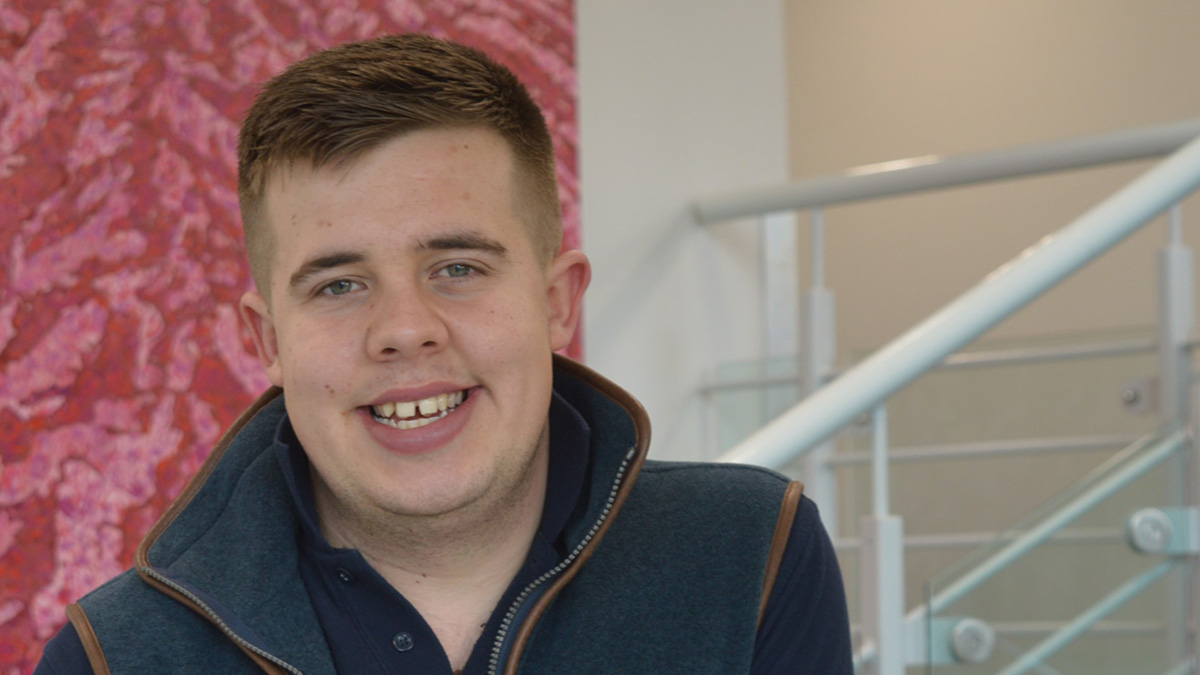Jack Emery chose to study BSc Agriculture at the University of Reading because it had everything he was looking for in his university experience.
“Reading appealed to me because of its large green campus while being so close to the town. It also has great accommodation options, and is a highly regarded course in a high-ranking School.”
The Agriculture course at Reading provides a well-rounded education in all the main aspects of the industry, as well as offering students an opportunity to specialise in areas of key interest.
“The course supported my goal to develop an understanding of agriculture as a whole, as well the chance to pick optional modules. I’ve learnt a lot about livestock science and production, crop science and agronomy, current industry challenges and much more. I’ve also built a strong understanding of farm management.
For my optional modules I chose to major on livestock production, including studying animal welfare, dairy production and meat production systems in depth.”
Fieldwork opportunities
A key part of the teaching at Reading is its field trips, as they help to bring theory to life and aid student understanding.
“I knew that Reading had a reputation for providing an excellent programme of field trips which would allow me to see agriculture in practice in a wide range of settings. The trips gave me a deeper insight into how the knowledge and skills that I have learnt can be applied in the real world.
From examining dairy management at CEDAR (one of the University farms), and growing and managing a trial plot of wheat at Sonning (another of the University’s farms), to visiting pig farms, horticultural enterprises and diversified businesses, I have seen a lot of different systems in action. I also went on residential study tours to Kent and Wales. I have learned so much due to the breadth of these visits.”
Livestock research
Jack, who has a passion for livestock, chose to conduct his final-year dissertation research on the impact of early life pneumonia on dairy heifer payback periods.
“My dissertation experience has been enjoyable because it’s on a topic I’m very curious about. I’ve focused my research on investigating whether early life pneumonia in heifer calves has knock-on effects as heifers transition into the herd - do they weigh less at first service and do they produce less milk in first lactation? This is important because it has an impact on both animal welfare, calf performance and the economics of 21st century dairy farm management.”
Life on campus
Jack was attracted to the many extracurricular opportunities available on campus. He has been a Course Rep and an active member of the Reading Agricultural Club.
“I’ve enjoyed both the regular socials, and the annual conferences arranged by the ‘Agric Club’. I also attended the 36th Edith Mary Gayton Memorial Lecture at Reading on ‘Farm management and policy approaches to support the journey to net-zero farming without compromising food security and quality’, where Minette Batters, President of the National Farmers Union, presented.
This was very informative and relevant to the current agricultural industry, enhancing its value to me and my course friends during our studies.”
After graduation, Jack hopes to travel, with ambitions to go and work in New Zealand.
“To go and work within the dairy industry and develop my understanding of the global practices adopted before ultimately heading back to my family farm would be great experience. I would love to use the knowledge and skills developed whilst at Reading, in combination with practical experience, to increase the value of our business.”
Find out more about agriculture courses at the University of Reading
